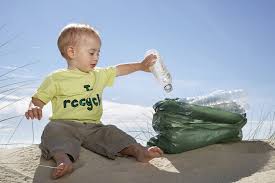 Most of the time, we do not think about where the trash goes once we take it to the county dump or have the garbage truck pick it up on its way through. We never question whether it is being disposed of properly once it leaves our home. We simply know that we do not want it anymore. Perhaps it is time that we start asking questions because a lot of times our trash is ending up in our oceans. This is not good for us or the world we live in. Therefore, before you send things to the county dumpster, decide if there is a better way for you to dispose of the unwanted things you have. You can do this by trying to recycle, reuse, and upuse the things that we can.
Most of the time, we do not think about where the trash goes once we take it to the county dump or have the garbage truck pick it up on its way through. We never question whether it is being disposed of properly once it leaves our home. We simply know that we do not want it anymore. Perhaps it is time that we start asking questions because a lot of times our trash is ending up in our oceans. This is not good for us or the world we live in. Therefore, before you send things to the county dumpster, decide if there is a better way for you to dispose of the unwanted things you have. You can do this by trying to recycle, reuse, and upuse the things that we can.
How Does Trash Migrate to Oceans?
You may think that the people who go out into the open water are the liter bugs who are filling it full of random trash. In some cases, this could be true, but not all. There is at least a reasonable chance that there are parts of you out there as well.
Just think about the last time a windstorm blew in and blew your trash bin over. Are you absolutely sure that you collected all the trash? Some of it could have been blown far enough away to end up in a storm drain. It can also get into sewer pipes and from there may end up in a waterway of some sort. From there, it may travel to the ocean.
The problem is typically plastic items since it does not disappear eventually like paper or wood may. Wood will rot and break apart. Paper, given the right circumstances, can do the same. It becomes brittle and breaks apart. Plastic stays.
How to Prevent Trash in Oceans?
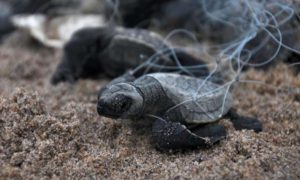 There are several things that you personally can do to reduce the amount of trash in our oceans. For instance, you can:
There are several things that you personally can do to reduce the amount of trash in our oceans. For instance, you can:
- Reduce the Use of Plastics or Use Only Recycled Plastics You Plan to Recycle Yourself
- Volunteer to Clean Beaches or River Beds Near You
- Avoid Microbeads in Products (Plastic)
- Convert to Bamboo Toothbrushes, Wooden Toys, Glass Jars, ETC.
- Buy Second Hand Furnishings, Toys, and More to Avoid Plastic Packaging and Other Junk
- Eat Fresh Produce at Home
- Recycle, Reuse, Upcycle All You Can!
By doing things like this, you are not sacrificing quality or quantity for your family. You are simply living a better way and protecting Earth’s oceans. Just think about it. If you have a rifle that you no longer want but your Steampunk rifle for sale add isn’t working. You have the option to keep it, trash it, or recycle it. Pens can be made from the same material and it would ensure that it is a usable material for that much longer. Why would you do anything else with it beyond recycle or upcycle it?
Keep The Forest Clean As Well
It’s not all about the oceans. Our forest can become quite polluted as well. Trips like unguided atv rentals Colorado let people tour the forest on their own. Some less responsible individual may be inclined to leave behind trash. The best motto is “leave no trace,” or to leave the forest better than when arriving. Do your part to keep the forest as clean as possible for future generations!
You Can Help Save an Ocean
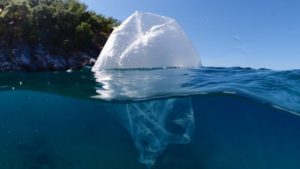 If you see trash on the ground, do you walk on past or do you toss it in the nearest trashcan? If you have an old dresser that you no longer want, do you send it to the landfill or give it to someone else to use? One man’s junk is another man’s treasure. We need to always remember that. If we all choose to consider our options to recycle, reuse, and upuse, we can make a difference.
If you see trash on the ground, do you walk on past or do you toss it in the nearest trashcan? If you have an old dresser that you no longer want, do you send it to the landfill or give it to someone else to use? One man’s junk is another man’s treasure. We need to always remember that. If we all choose to consider our options to recycle, reuse, and upuse, we can make a difference.
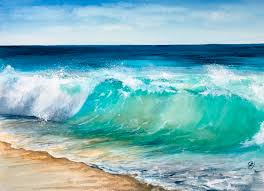 Our oceans hold many secrets. They are a huge part of the world that we live in. If they get too high or too low, it can lead to major problems for our world. This is why we look so hard at the glaciers and global warming trends that may change the world in unbelievable ways. It is also one of the main reasons there are projects like MariaBox.
Our oceans hold many secrets. They are a huge part of the world that we live in. If they get too high or too low, it can lead to major problems for our world. This is why we look so hard at the glaciers and global warming trends that may change the world in unbelievable ways. It is also one of the main reasons there are projects like MariaBox.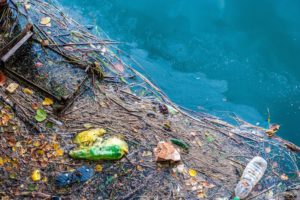 This box is a device that monitors our oceans. It looks for biological and chemicals that may be polluting our waterways. It is installed in a buoy and can be seen in a variety of areas.
This box is a device that monitors our oceans. It looks for biological and chemicals that may be polluting our waterways. It is installed in a buoy and can be seen in a variety of areas.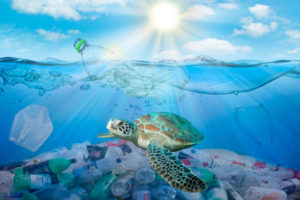 One of the main reasons we have to worry about pollutants is simple. Our aquatic life. The oceans around us, the ones that we depend on, are being filled with all types of trash, oil, carbon emissions, and noise. It is interrupting the way that our fish thrive. We have all seen the effects of an oil rig that goes bad. The water for miles around it becomes nasty for fish and all other types of organisms in the water. It coats their fur and fins, making it impossible for birds to fly, fish to breathe, and more.
One of the main reasons we have to worry about pollutants is simple. Our aquatic life. The oceans around us, the ones that we depend on, are being filled with all types of trash, oil, carbon emissions, and noise. It is interrupting the way that our fish thrive. We have all seen the effects of an oil rig that goes bad. The water for miles around it becomes nasty for fish and all other types of organisms in the water. It coats their fur and fins, making it impossible for birds to fly, fish to breathe, and more.